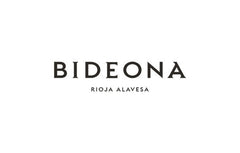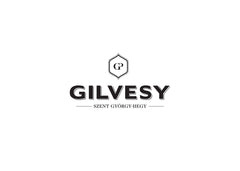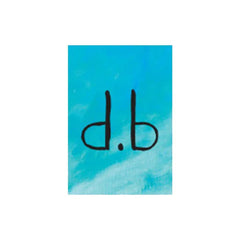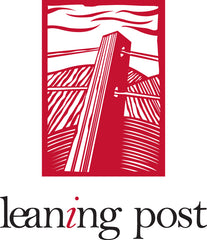21 products
- Sparkling Wine
- Riesling, Vidal
- Sustainable, Vegan-Friendly
- Dry
- Light Bodied
- 750ml
- 12% alc./vol
About the Winery
Pearce Family Wines

In the early 2000's Nicholas Pearce was exposed to the garagiste movement in Bordeaux and was particularly inspired by négociants like Jean Luc Thunevin (Saint Emilion), James Sichel (Margaux) and Nicolas Potel (Beaune) from Burgundy.
After returning home to Ontario and starting his own wine company, he has had a hand in making 10+ wines in two hemispheres, 3 countries and 5 different appellations since the 2013 vintage.
- Red Wine, Rosé Wine, White Wine
- Lambrusco di Sorbara, Olaszrizling, Pinot Gris, Pinot Nero, Pinot Noir, Riesling, Sauvignon Blanc, Tempranillo, Trousseau
- Sustainable
- Dry
- 750ml
About the Winery
Bideona

Bideona owns or manages over 300 parcels of extraordinary vines in villages throughout the Rioja Alavesa, the coolest, smallest and most Atlantic sub-zone of Spain’s most famous wine region.
The vineyards of the Rioja Alavesa are defined by parcels of old bush vines planted on terraces or hillside slopes with a high percentage of limestone. Located in the foothills of the Sierra Cantabria, Bideona’s vines have an average age of 50 years and many were planted in the 1920s, 30s and 40s, before high-yielding clones became available.
Bideona puts the focus firmly on terroir by making each wine in its Vino de Pueblo range as a field blend of Tempranillo and other native varieties from plots in an individual village. Each is named with an acronym – L3Z4 for Leza, L4GD4 for Laguardia, S4MG0 for Samaniego and V1BN4 for Villabuena – owing to DOCa Rioja regulations that only allow village names to be marked if both the winery and the vineyard are in the same location.
“Bideona’s reason for existence is to make wines that show the personality of the Rioja Alavesa and its historic wine villages” states company co-founder and director, Andreas Kubach MW. “We have access to a wealth of diverse plant material in our parcels of old vines, which we believe contributes to the complexity of the wines as well as the differences between villages.”
Domaine Baud Père et Fils

The history of Domaine Baud dates back to 1742, and it wasn't until 1950 when René Baud, the 7th generation, rebuilt the vineyard which had suffered from the phylloxera crisis and two World Wars.
Starting with only 4 hectares, the vineyard progressively expanded to 20 hectares with the help of successive generations. Now, managed by siblings Clémentine and Bastien, the 9th generation, the estate continues to flourish and grow, with a strong commitment to sustainable viticulture and preserving the traditions and style that makes the wines of the Jura so unique and incredible.
The estate achieved the Terra Vitis certification in 2014 for its eco-friendly work and environmental preservation.
Gilvesy Pincészet

Hungarian expat Róbert Gilvesy moved back to his homeland from Canada, and began building the Gilvesy winemaking empire on the former Esterházy estate on Szent György Hill. Thanks to years of hard work, the Hegymagas-based facility now includes a modern building complex and about 13 hectares of vineyards, in addition to being the home of the family. The area is shaped by 6 million years old volcanoes, where indigenous and international varieties grow organically.
Robert’s absolute admiration for nature and the terroir translates into an immense respect for the environment. By farming using organic practices, the soils and the vines stay healthy. In the winery, by letting nature take its course without controlling the processes, and using local resources, such as Hungarian oak barrels, Gilvesy promotes and protects the Balaton region.
- White Wine
- Riesling
- Natural
- Dry
- Residual Sugar: 1.89 g/l
- Light Bodied
- 750ml
- 12.5% alc./vol
About the Winery
RR81
RR81 stands for 'Regional Road 81' - the road The Farm sits on, and a main artery through wine country. The RR81 approach to winemaking is simply fermented grapes with nothing added. One-off wines sourced from some of the best single vineyards in Niagara. These wines are made in the barn at The Farm with minimal intervention (just a few bins and an old basket press). The result equals some of the best, and most unique, wines coming out of Niagara.- White Wine
- Riesling
- Biodynamic, Natural
- Dry
- 750ml
About the Winery
Weingut Bianka und Daniel Schmitt

Bianka and Daniel took over the Weingut Schmitt in 2012 as the fourth generation to lead the winery. They are based in Wonnegau in the south Rheinhessen, centered in Flörsheim-Dalsheim. All of the vineyards are in Flörsheim-Dalsheim and neighbor villages Monsheim and Kriegsheim. Bianka and Daniel have been working their 16 hectares biodynamically for over a decade and are one of only 80 producers in Germany to be Demeter certified. They work with amphorae as well as used oak barrels and release a ‘Natur’ line that contains no added sulphur.
Here are Bianka and Daniel in their own words:
“Working biodynamically is a lifestyle that includes producing and spreading preparations in the vineyards as well as social interactions. The interactions between the life in the soil (like bacteria, mykorizen, plants as green cover and the vines) are composed with each other. Vines become stronger and get more vitality from a living soil, not from chemical treatments.
This active interaction in the soil life, the mutual strengthening of the plants result in stronger resilience for the vines which reflects the high quality of the grape, supports the presence of the individual soil types (calcareous soil covered by clay and partly loess, pebble). By working according to the biodynamic principles, biodiversity is supported as an automatic successor. As a result, the vineyards and the biotopes created by Bianka and Daniel offer a home for a diverse and local animal community.
After hand picking, the grapes are processed with or without skin maceration. And rest in wooden oaks (5000L, 3000L, 1200L, 600L) or clay amphorae (1200L, 300L) for at least 12 months on the whole yeast depot. The focus is on offering an optimal aging potential for the years to come. In order to support the collegial exchange and to enable operational training in the field of biodynamic agriculture, Bianka and Daniel and their winery are proud members of the Renaissance des Appellations, Demeter and Vinnatur associations.”
- White Wine
- Riesling
- Natural, Sustainable, Vegan-Friendly
- Dry
- Medium Bodied
- 750ml
- 13.2% alc./vol
About the Winery
Leaning Post

A leaning post is what you find at the beginning of a row of grapes, anchoring the wires that are the frame-work for growing grapevines. It is the beginning of an obsession to translate a time and place into liquid. Leaning Post wines take you to that beginning by finding small, unique plots of land in Niagara and putting them in bottle. Because after stripping away all the fancy buildings and high-tech equipment you are left with a place on this earth that grows wine unlike any other. When you taste that in a glass you just know it. Nadia and Ilya have had to rely on the support of family, friends and financial institutions to make the dream of owning a winery a reality. Leaning Post began as a virtual winery and is so proud to now have the quaint tasting room at 1491 Hwy 8 on their home property in Winona, Ontario.
Ilya and Nadia are the brains and passion behind Leaning Post Wines. It started with a dream to take unique, interesting single vineyard blocks in Niagara and turn them into distinctive, terroir driven wines. Nadia and Ilya first met in their hometown of Winnipeg, MB where their passion for wine and each other was born.
Ilya has been a winemaker in the Niagara Region for the last 17 vintages working at Daniel Lenko Estate Winery, Foreign Affair and now at Leaning Post Wines. Ilya is also a consulting winemaker at the Good Earth Winery. Ilya’s true passion in life is to make world renowned wines from Niagara that really showcase the distinct terroir that Niagara offers.
- White Wine
- Riesling
- Sustainable, Vegan-Friendly
- Dry
- Light Bodied
- 750ml
- 12% alc./vol
About the Winery
Leaning Post

A leaning post is what you find at the beginning of a row of grapes, anchoring the wires that are the frame-work for growing grapevines. It is the beginning of an obsession to translate a time and place into liquid. Leaning Post wines take you to that beginning by finding small, unique plots of land in Niagara and putting them in bottle. Because after stripping away all the fancy buildings and high-tech equipment you are left with a place on this earth that grows wine unlike any other. When you taste that in a glass you just know it. Nadia and Ilya have had to rely on the support of family, friends and financial institutions to make the dream of owning a winery a reality. Leaning Post began as a virtual winery and is so proud to now have the quaint tasting room at 1491 Hwy 8 on their home property in Winona, Ontario.
Ilya and Nadia are the brains and passion behind Leaning Post Wines. It started with a dream to take unique, interesting single vineyard blocks in Niagara and turn them into distinctive, terroir driven wines. Nadia and Ilya first met in their hometown of Winnipeg, MB where their passion for wine and each other was born.
Ilya has been a winemaker in the Niagara Region for the last 17 vintages working at Daniel Lenko Estate Winery, Foreign Affair and now at Leaning Post Wines. Ilya is also a consulting winemaker at the Good Earth Winery. Ilya’s true passion in life is to make world renowned wines from Niagara that really showcase the distinct terroir that Niagara offers.
Press Reviews
Wines in Niagara
93 points (2021) - Rick VanSickle
It’s just so sad that Riesling has fallen so far from favour with consumers. Senchuk has been a champion of this super-star grape in Niagara since the early days of what was at one time his virtual brand. And he’s never given up on it, no matter how difficult it can be to sell. This expression from nearby Grimsby Hillside Vineyard is world class and is everything I love about this grape in Niagara. Senchuk stopped fermentation at 11 g/l RS and allowed for 11 months of lees aging. The enticing nose shows the full range of saline minerality, lanoline, grapefruit, empire apple, honeysuckle, savoury notes and a touch of ginger. The fresh vein of saline continues on the palate with peach pit, lime citrus, crisp apples, a touch of honeycomb and a vibrant, juicy finish. Can age through 2030.






















